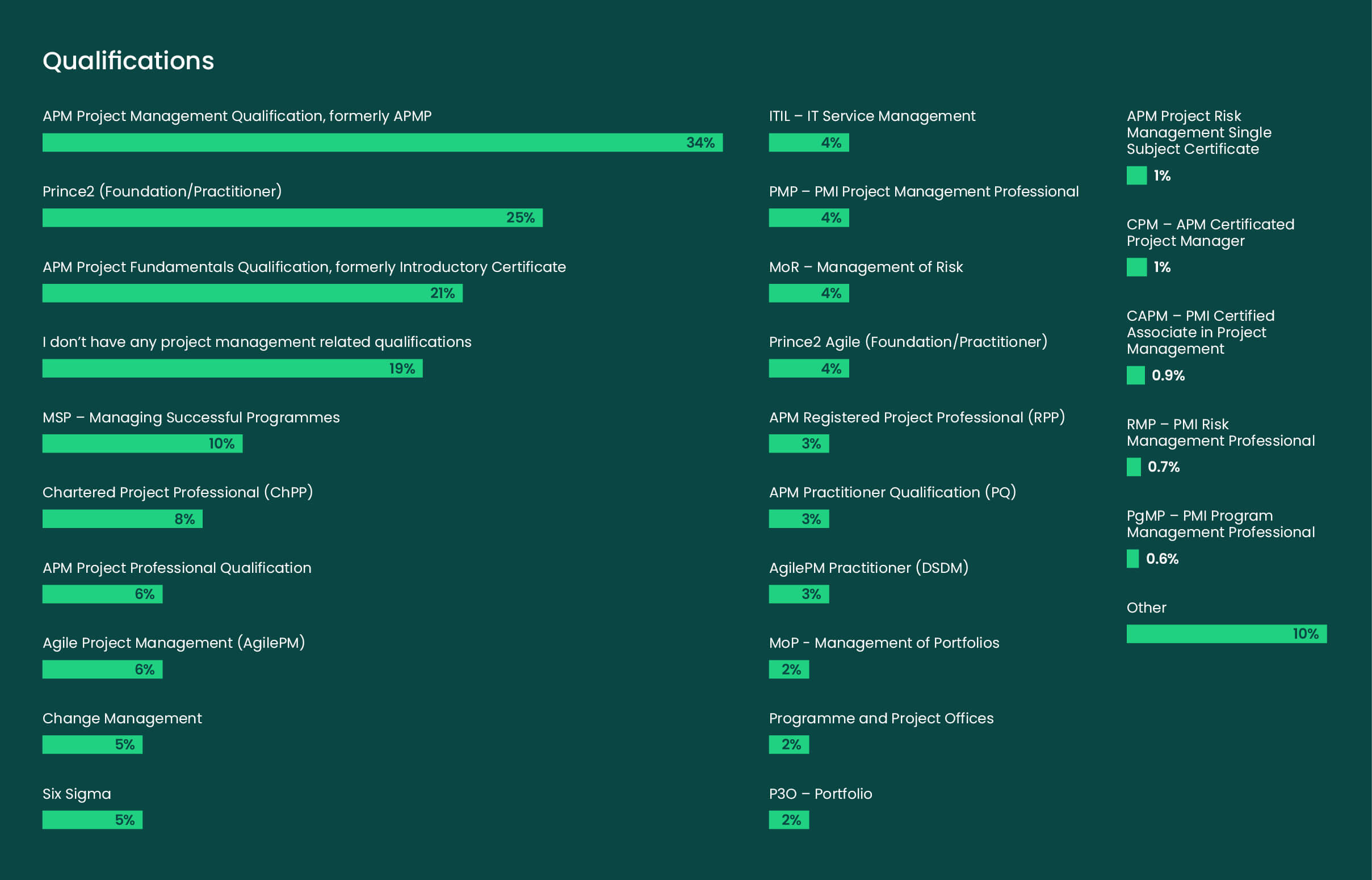| Respondents
The project management profession is made up of a fascinating number of professionals at different stages of their careers, working in a vast range of sectors which reflects on the growth and development opportunities the profession provides. The size and nature of the projects may shift every year, but the overall picture shows a workforce that remains highly resilient in the face of demanding challenge.
One of the main trends this year is that respondents to the survey are getting younger, with 41% being in the industry for less than five years – a jump back up to pre-pandemic levels. Within those who have recently joined the industry, there’s also an increase of women, ethnic minorities and the disabled, demonstrating the widening appeal of the profession to everyone.
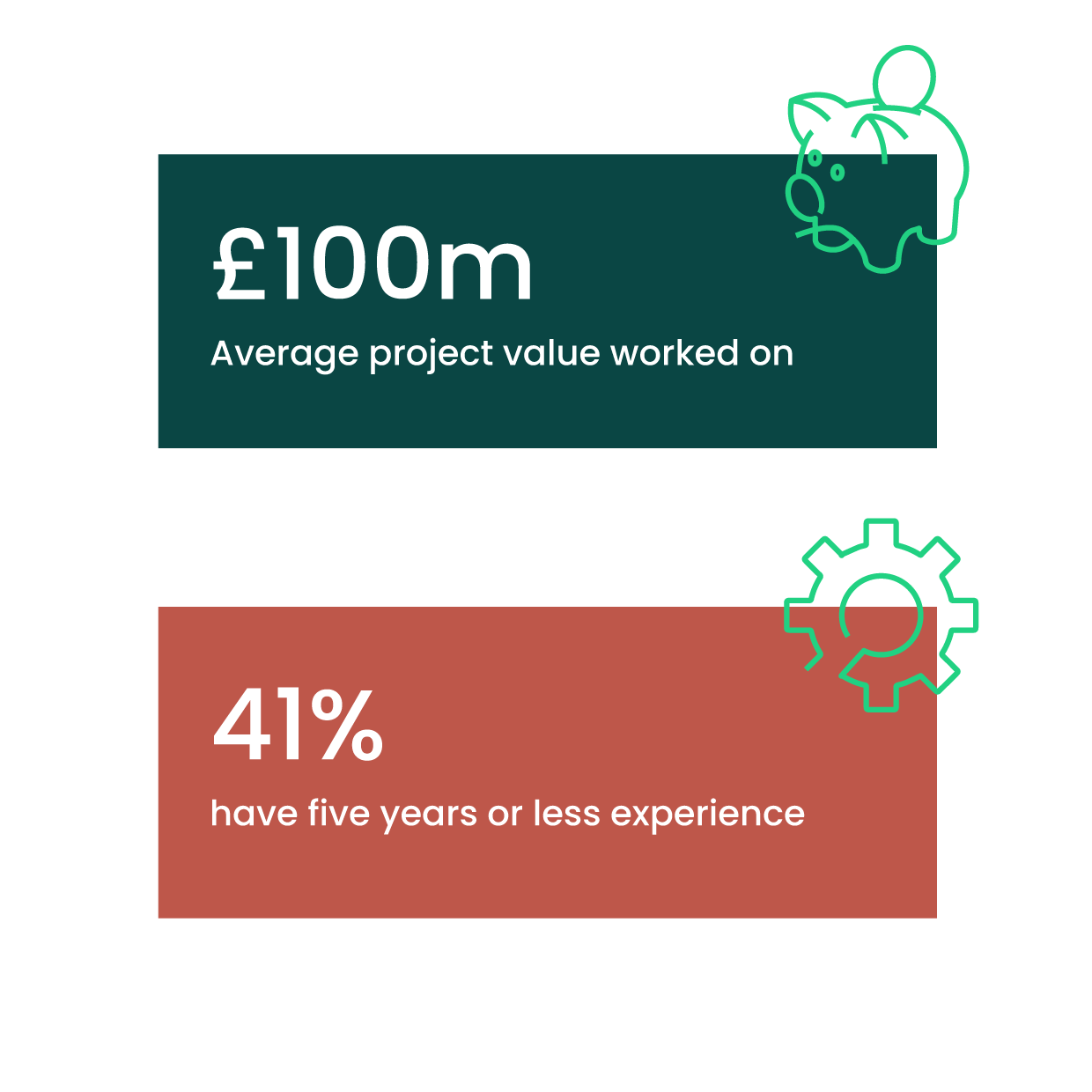
| Sector
With the current economic uncertainty, there’s little movement between roles and sectors in the past 12 months, with most staying within their chosen field. Construction and defence remain the most popular sectors, with energy and central government firmly placed in the top five.
However, one significant movement is the rise of consultancy, up from fifth place in 2021 to third this year. This could be a consequence of career reassessment during the pandemic, with working from home and technology developments enabling more professionals to shift from working for a single organisation to taking on different projects for different employers.
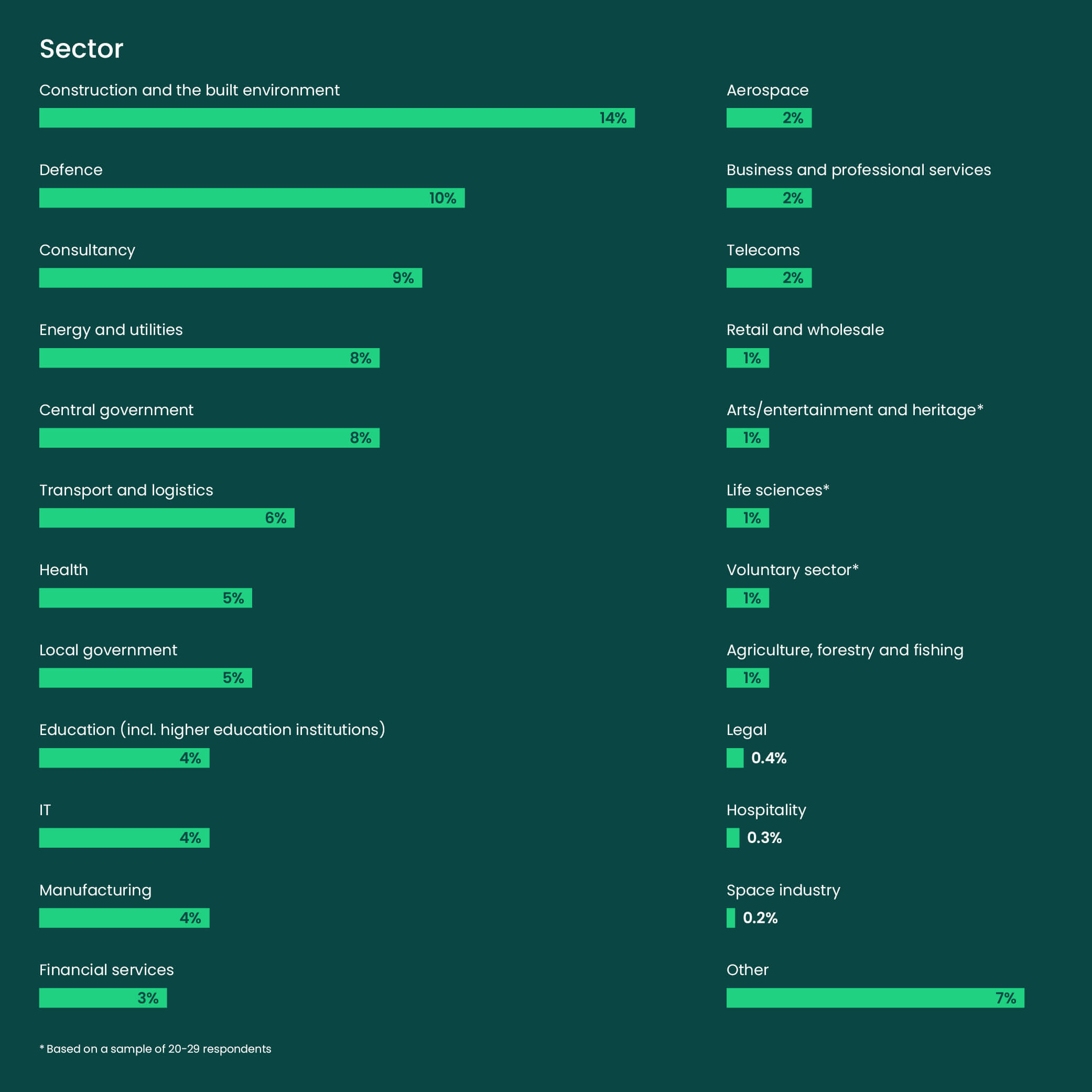
| Organisation size
As with sector, there’s little movement in terms of organisation size, with firms employing 1,000 to 4,999 staff making up the largest section.
There is a small decline in the amount of companies employing 25,000 to 49,999 employees, from 11% in 2021 to 8% in 2023, with a corresponding decrease in large firms (25,000 staff or more) from 31% to 26%.
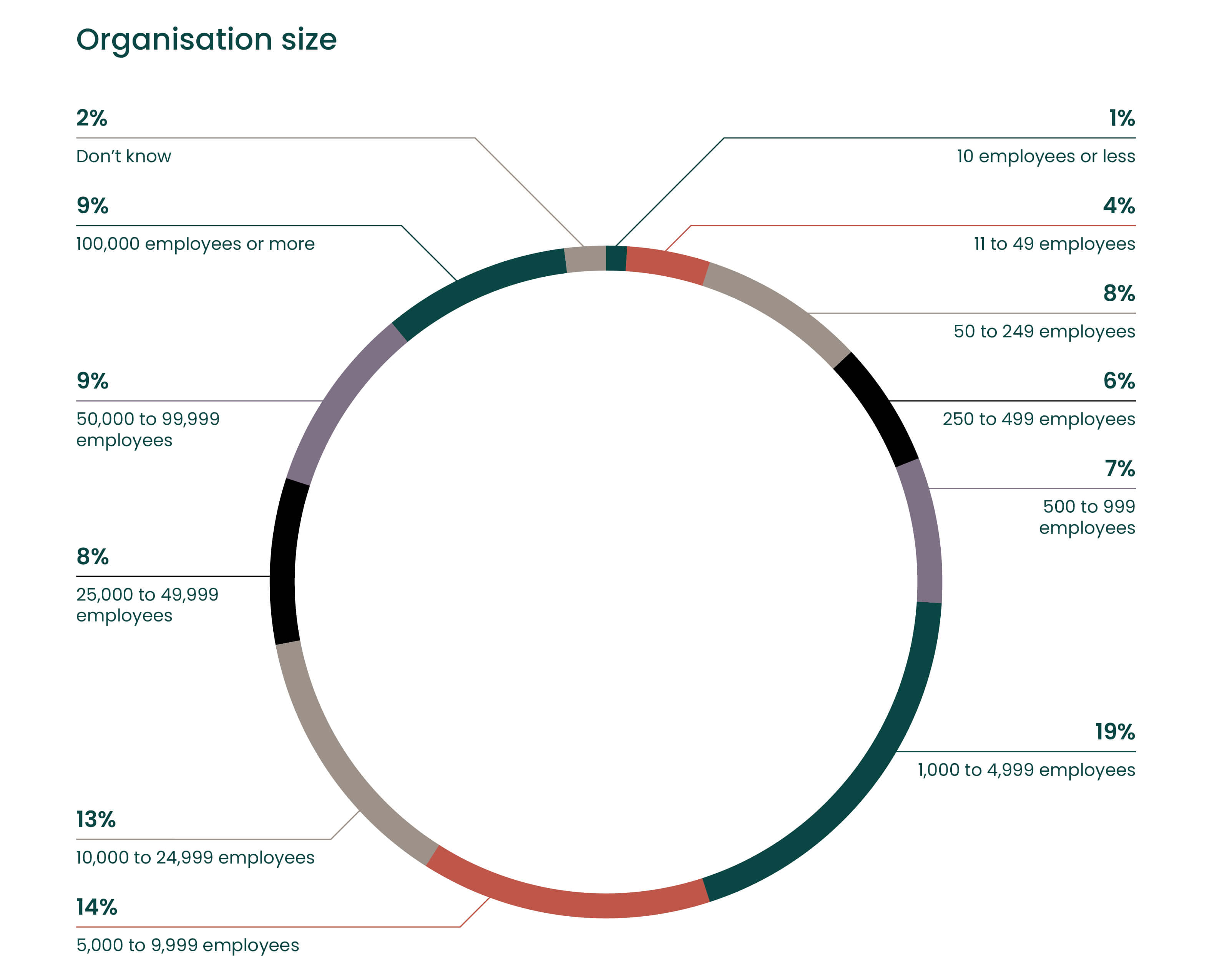
| Project size
There’s been a marked decrease in the average cost of projects across the UK, dropping from £118m in 2021 to just under £100m in 2023. This £18m fall is largely attributable to the reduction in projects worth over £500m, but there’s also been a decrease in the cost of projects worth between £1-5m and £25-250m.
Around the UK, the North West continues to have the projects with the highest average cost (£125.5m), higher than those in London (£113m) and the South East (£91m), while the South West and West Midlands aren’t too far behind with average project costs of £119m and £112.5m respectively. Along with the average cost of projects in the UK, those outside the country have also dropped, decreasing from £161m in 2021 to £114m in 2023.
When looking at the cost of projects undertaken by those who are Full APM members, the proportion managing projects worth over £500m rises to 15% – significantly above the average. That proportion rises further to 28% for those who have Chartered Project Professional (ChPP) status, demonstrating how this standard can lead to managing larger projects.
| Experience
After a dip in the amount of project professionals with less than two years’ experience, this year shows a significant rise, back to the pre-pandemic level of 20%. This is highly encouraging and indicates a healthy influx of new talent into the industry.
Further up the scale, the proportion of more experienced project professionals is dropping, with most age ranges decreasing in size, in particular, those with 16-20 and 21-30 years of experience. However, it’s encouraging to note that the proportion of women new to the industry with less than two years’ experience is now one in four compared to one in five in 2021.
🕮 New ways of working are breaking down barriers for women in projects
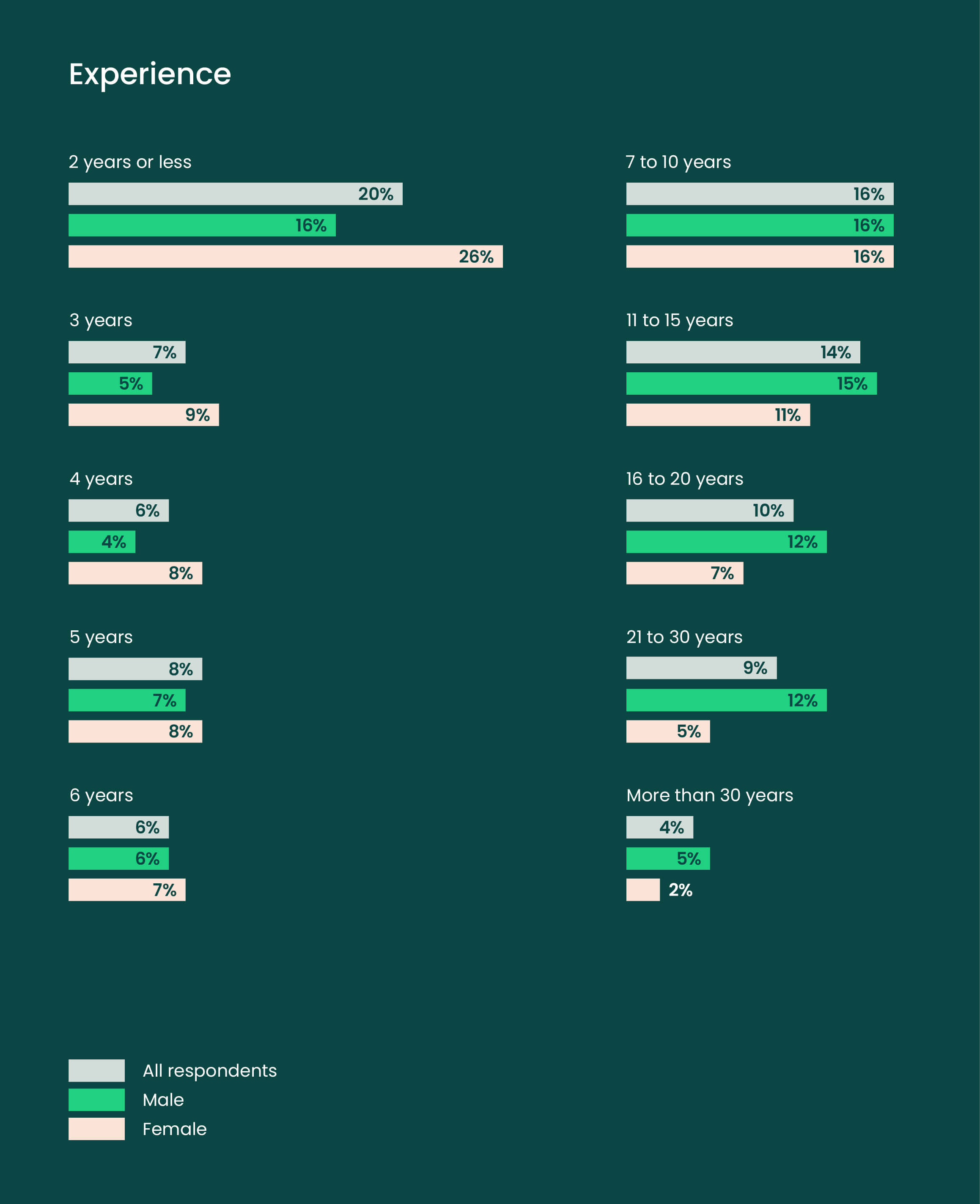
| Qualifications and standards
Gaining an APM project management qualification has long been a way for professionals to boost their knowledge and demonstrate their commitment to their careers, from the most popular (APM Project Management Qualification, held by 34%) to the more specialist (APM Professional Qualification, 6%).
Following the APM Project Management Qualification, the APM Project Fundamentals Qualification is held by 21% of respondents. For those just entering the industry, this is by far the most popular choice to gain a broad knowledge of the profession.
Becoming a Chartered Project Professional (ChPP), continues to gain popularity and is held by 8% of respondents, up from 6% in 2021. While the previous survey found that the energy sector held the highest proportion of professionals with chartered status, this year it’s the consultants that have the top spot with 18%, closely followed by construction (16%).
In terms of general education, levels of qualification have remained broadly similar across the board over the past 12 months, with the vast majority (80%) educated to degree level and above.
